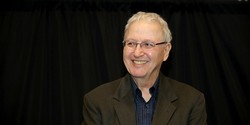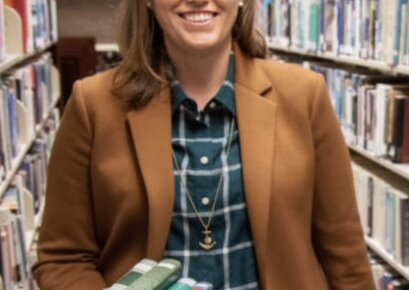Brian Greenberg, Ph.D., American Social History Chair Emeritus, has been nominated and will receive the Commerford Labor Education Award from the New York Labor History Association (NYLHA) on Thursday, Dec. 4, during the John Commerford Labor Education Awards Ceremony.
The NYLHA founded the John Commerford Labor Education Award in 1987, celebrating two honorees for their contributions to workers’ empowerment each year. Encouraging the study of workers and their organizations, the NYLHA “serves as a bridge between past and present labor unionists and academics.”
Thomas Pearson, Ph.D., Professor of History, said, “Greenberg brought integrity and an ability to see the best interests for faculty and the University to his work in this arena for many years.” Pearson emphasized that Greenberg’s commitment was especially evident as he negotiated the faculty contract four times.
“The Commerford Award rightly recognizes [Greenberg’s] diverse professional contributions to labor history and collective bargaining, and it is a pleasure for [us] to congratulate him,” stated Pearson.
According to former colleague Chris DeRosa, Ph.D., Chair of the History and Anthropology Department, “The Commerford Award recognizes contributions to workers’ empowerment. Brian not only did that as Chair and negotiator, but he also conveyed the history of laborers’ unending struggle for fairness and dignity to generations of Monmouth students who went on to become workers and employers themselves.”
Although recently retired, Greenberg has served in a multitude of roles centered around labor education and activism.
“I was first hired as the Jules Plangere Chair in American Social History in 1990, thus allowing me the opportunity to work in different capacities on campus,” Greenberg said. He was later appointed to work as Chief Negotiator for the Faculty Association, in addition to his duties as Chair and Professor of the Department of History and Anthropology.
“He was a tough negotiator for the Faculty Association but absolutely fair and highly principled,” Pearson said.
“During these negotiations, it was important to us that we represented the interests of the faculty, enabling them to focus their efforts on success in the classroom,” said Greenberg. “We wanted to ensure that Monmouth facilitated an uplifting work environment that attracted the best possible teachers.”
Greenberg went on to teach classes, introducing courses in labor history, and enhancing the Department’s reputation with his numerous scholastic publications. Greenberg has authored three books, all of which highlight his passion for the history of labor and how it is still an important part of education today.
“As an educator, I believe it‘s essential for students to recognize the issues the country has overcome and acknowledge that there are remnants of problems that have yet to be solved,” explained Greenberg. “I am grateful to Monmouth University for empowering me to project my passions forward to new generations.”
PHOTO COURTESY of Anthony DePrimo


